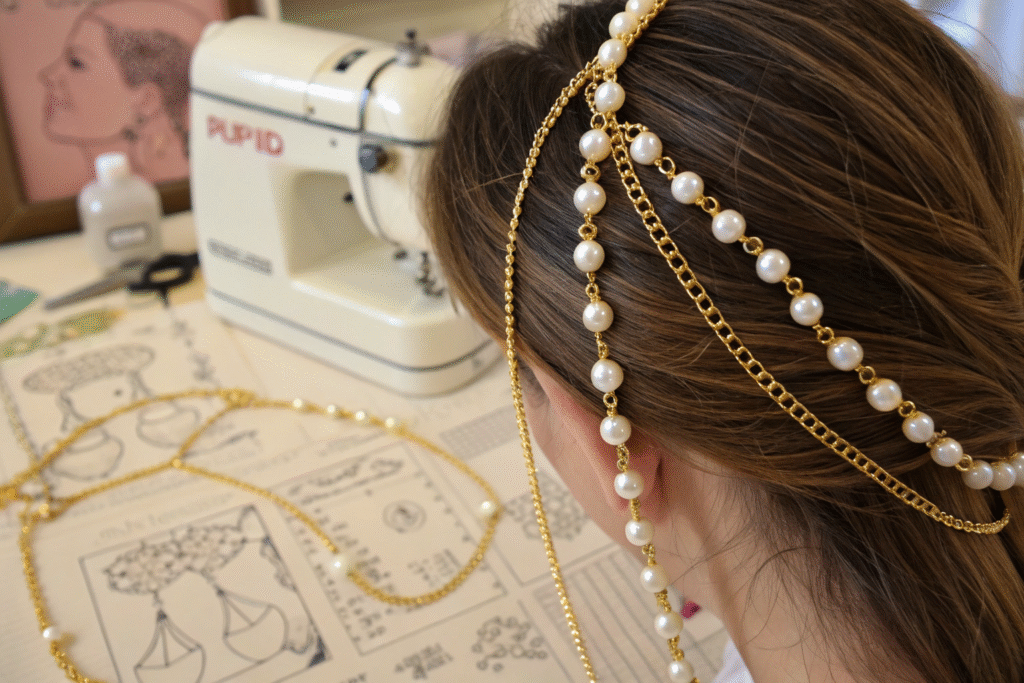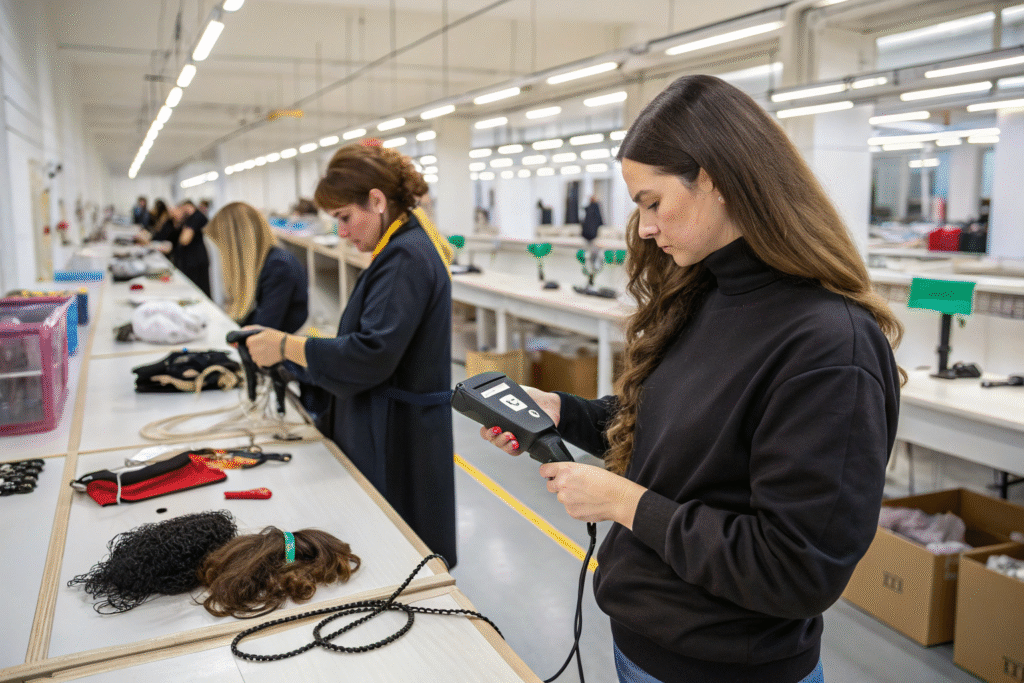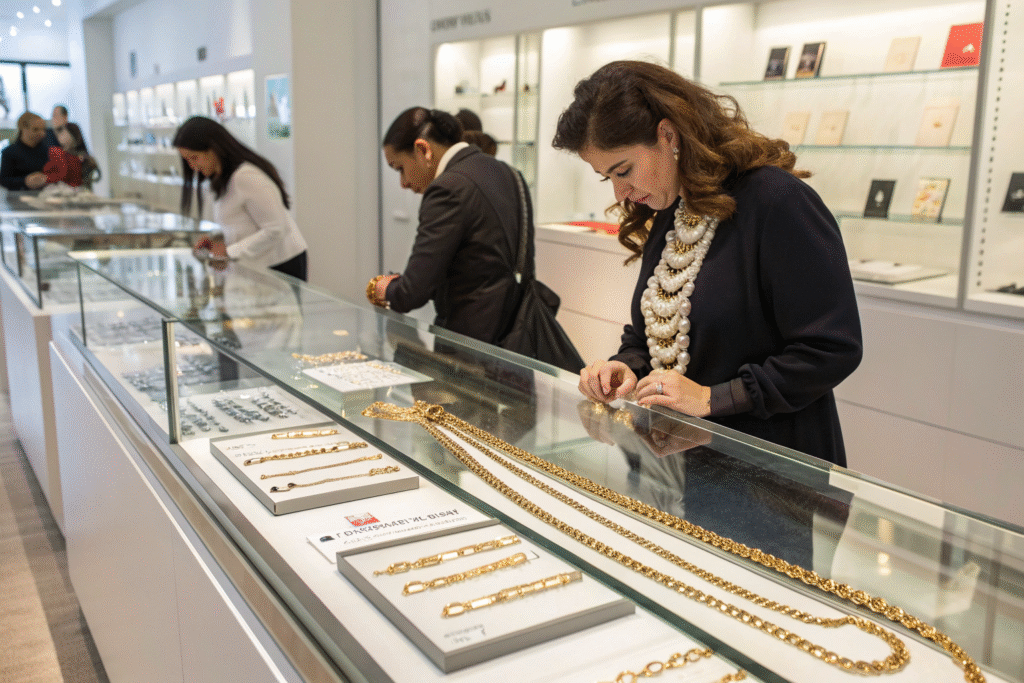In today’s competitive fashion accessories market, protecting inventory while maintaining style is more critical than ever. If you sell high-end or limited edition hair accessories, you know the pain of shrinkage and theft. RFID-enabled hair chains are an elegant way to combine fashion with security.
RFID-enabled hair chains are accessories embedded with discreet RFID tags that allow for quick inventory scanning, anti-theft alerts, and efficient stock control. For wholesale buyers and fashion brands, sourcing the right supplier is a balance between style, quality, and technological reliability.
When I began exploring RFID integration in our own HairAcc lines, I faced the same questions you might have now: where to find trustworthy manufacturers, how to ensure tags don’t ruin aesthetics, and how to manage costs without sacrificing quality. Let’s go through these points step-by-step.
Where to Find RFID Hair Chain Suppliers?
Finding a capable RFID hair chain supplier requires patience and clear criteria. Many accessory factories claim RFID capability, but few understand both fashion craftsmanship and tech integration.
The most reliable way to find RFID-enabled hair chain suppliers is by combining online research on verified platforms with in-person trade show visits, where you can inspect both product quality and RFID functionality. This dual approach ensures you see real samples and validate the supplier’s technical know-how.

What trade shows are best for RFID fashion accessories?
Events like the Canton Fair and Global Sources Fashion Show often feature manufacturers with RFID capability. Walking the halls allows you to physically test sample hair chains and ask about integration processes. Some shows even have live RFID demonstrations.
How to verify suppliers online before contact?
I always start with platforms like Alibaba and Made-in-China, filtering for RFID tags in product descriptions. Then, I request product videos showing both the accessory’s aesthetics and the RFID scan in action. This weeds out suppliers who outsource RFID without real experience.
What RFID Tags Suit Delicate Accessories?
For hair chains, which often use lightweight materials, the RFID tag must be compact, flexible, and unobtrusive. Large tags could affect comfort or ruin the accessory’s look.
The best RFID tags for delicate accessories are ultra-thin, flexible inlays or woven tags that blend into the material without adding bulk or visible marks. Your supplier should have experience embedding them without damaging the accessory.

Which RFID frequency works best for hair accessories?
High-frequency (HF) RFID tags like those used in NFC applications work well because they’re small and have a short read range, suitable for store inventory and checkout anti-theft systems. Ultra-high-frequency (UHF) is more for warehouse-level tracking, which might be overkill for small fashion items.
How to ensure RFID tags don’t damage materials?
I work closely with suppliers who use woven label RFID integration to keep tags secure yet invisible. Testing is crucial—samples must be worn, washed, and handled to ensure tags stay functional without fraying fabric or metal parts.
How to Check RFID Quality and Compliance?
Sourcing RFID-enabled products isn’t just about getting the cheapest tag—it’s about ensuring the tags scan reliably, meet regulations, and last the product’s life cycle.
To check RFID quality, you should test read rates, durability under real-world conditions, and verify compliance with regional RFID regulations before mass production. This protects you from costly recalls and customer dissatisfaction.

What are the key tests for RFID hair chains?
I recommend suppliers conduct both read range tests and wash/durability tests. A quality tag should maintain readability after being bent or exposed to mild moisture. In our factory, each batch is scanned multiple times before shipping.
How to confirm compliance with global standards?
Suppliers should provide EPCglobal certification and FCC or CE compliance documents. For US and EU exports, these are mandatory. I’ve seen shipments stuck at customs simply because compliance wasn’t documented.
How to Balance Cost and ROI of RFID?
Cost is often the biggest hesitation in adopting RFID for accessories. Tags, integration labor, and quality control all add to the per-unit price.
The key to balancing cost and ROI is to calculate shrinkage reduction, faster inventory handling, and brand protection benefits against the added RFID expense. When these benefits outweigh costs, RFID is worth the investment.

How to calculate savings from RFID implementation?
I use inventory management ROI calculators to model scenarios. If RFID reduces loss by even 2–3% in high-value accessories, the payback period is often under a year. It also frees staff from manual counts, saving labor costs.
What strategies reduce RFID integration costs?
Negotiate bulk pricing for tags and combine RFID with other brand authentication solutions. Also, work with a single supplier like HairAcc that manages both accessory production and RFID embedding in-house—this avoids double handling and extra logistics.
Conclusion
Sourcing RFID-enabled hair chains is not just a tech upgrade—it’s a smart investment in inventory security, operational efficiency, and brand trust. The right supplier will balance style and technology, giving you a product that delights customers and protects profits.
If you’re ready to explore RFID hair chain production, we at Shanghai Fumao can handle the full process—from design and manufacturing to RFID integration and global shipping. Contact our Business Director Elaine at elaine@fumaoclothing.com to discuss your project and request free samples.









